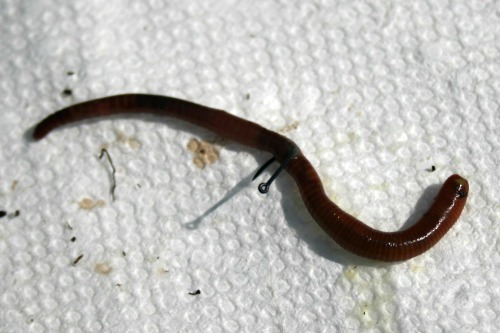Keep Your Lawn Green and Healthy with Expert Guidance from Lake Hickory Bait
The Unbelievable Globe of Red Wigglers: Boost Your Dirt Fertility Today
These little yet reliable organisms change natural waste into useful worm castings, substantially boosting soil health and wellness and advertising sustainable methods. As we discover the benefits of vermicomposting and the functional actions to create an efficient worm container, the potential effect of these worms on your horticulture success comes to be progressively obvious.
Understanding Red Wigglers
Red wigglers, clinically recognized as Eisenia fetida, are a varieties of earthworm that play a vital duty in enhancing soil fertility. These worms prosper in organic-rich atmospheres, such as compost heap and decomposing plant material, where they take in natural waste and eliminate nutrient-dense castings. Their special makeup, featuring a segmented body and a clitellum, permits them to duplicate rapidly and successfully process large amounts of natural issue.

The ecological relevance of red wigglers expands past mere waste processing; they add to the soil food internet, promoting a diverse community of bacteria that further enhance dirt health and wellness. Recognizing the biology and behavior of red wigglers is vital for using their complete possibility in lasting agriculture and gardening techniques.
Benefits of Vermicomposting
(Red Wiggler Express)Harnessing the power of red wigglers via vermicomposting offers many benefits that substantially improve dirt wellness and fertility. Among the main advantages is the manufacturing of nutrient-rich worm spreadings, which are a superb natural fertilizer. Red Wiggler Express. These castings include crucial nutrients like nitrogen, phosphorus, and potassium, advertising durable plant growth and improving plant returns
The visibility of worm castings improves dirt texture, permitting for better water retention and water drainage. Red wigglers help break down natural matter, increasing decay and recycling nutrients back right into the dirt.
Vermicomposting also fosters microbial activity, which is crucial for a healthy and balanced dirt ecological community. Beneficial bacteria grow in the visibility of worm castings, helping in the breakdown of organic materials and boosting vitamins and mineral accessibility to plants.
Last but not least, vermicomposting functions as a reliable waste management remedy, minimizing landfill waste by reusing cooking area scraps and various other natural products. This not only adds to ecological sustainability but also promotes a circular economic situation within horticulture and agriculture.
Exactly How to Establish a Worm Bin
Establishing a worm container is a straightforward process that can substantially improve your composting initiatives. Begin by choosing a suitable container, which can vary from a readily readily available worm container to a straightforward plastic or wood box (Red Wiggler Express). Make certain the container has sufficient ventilation; small openings in the cover and sides will certainly help with air circulation
Following, create a bed linen layer to offer a comfy environment for the red wigglers. This can be made from shredded newspaper, cardboard, or coconut coir, dampened to a wet, sponge-like uniformity. Fill up the container to around one-third complete with this bedding material.
Once the bedding is prepared, it's time to introduce the worms. Red wigglers flourish in natural waste, so area them delicately onto the bed linens. Cover the worms with a light layer of additional bed linen to assist them adapt.
Feeding Your Red Wigglers
Giving the ideal food for your red wigglers is important for their health and wellness and the efficiency of your composting system. Red wigglers grow on a varied diet regimen, primarily consisting of natural materials such as fruit and vegetable scraps, coffee premises, and shredded paper. These products not just provide crucial nutrients however also contribute to the microbial activity in the worm bin, which is essential for the worms' digestion.
It is essential to avoid specific foods, such as milk products, oils, and meats, as these can bring in parasites and create unpleasant smells. In addition, citrus peels and excessively zesty foods should be limited due to their prospective to harm the worms. A well balanced approach to feeding includes keeping an eye on the amount of food presented to the bin, making sure that it is eaten within a sensible timespan look here to avoid excess waste accumulation.
To promote optimal digestion, it is valuable to chop or shred larger food things before adding them to the container. This technique boosts the area for microbial activity, promoting quicker decomposition and improving the total efficiency of your composting system. Routinely observing the worms' feeding habits will assist you adjust their diet regimen as needed.
Utilizing Worm Spreadings in Your Garden

(Red Wiggler Express)Including worm castings into your garden can be completed by mixing them into the dirt or using them as a leading clothing. The slow-release nature of these spreadings ensures that nutrients are available to plants over a prolonged duration, decreasing the need for synthetic fertilizers. In addition, worm castings consist of useful microbes that advertise healthy dirt ecological communities, enhancing the general resilience of your yard.
To take full advantage of the benefits, aim to apply about one part worm spreadings to 3 parts dirt in your planting beds. Routine applications can lead to boosted crop yields and much healthier plants, making worm spreadings an important source for both novice and knowledgeable gardeners alike. By using this natural modification, you can grow a thriving yard while adding to sustainable gardening methods.
Final Thought
In verdict, red wigglers exhibit the crucial duty of vermicomposting in enhancing soil fertility. Their ability to convert organic waste into nutrient-rich castings considerably enhances soil structure and sustains microbial variety.